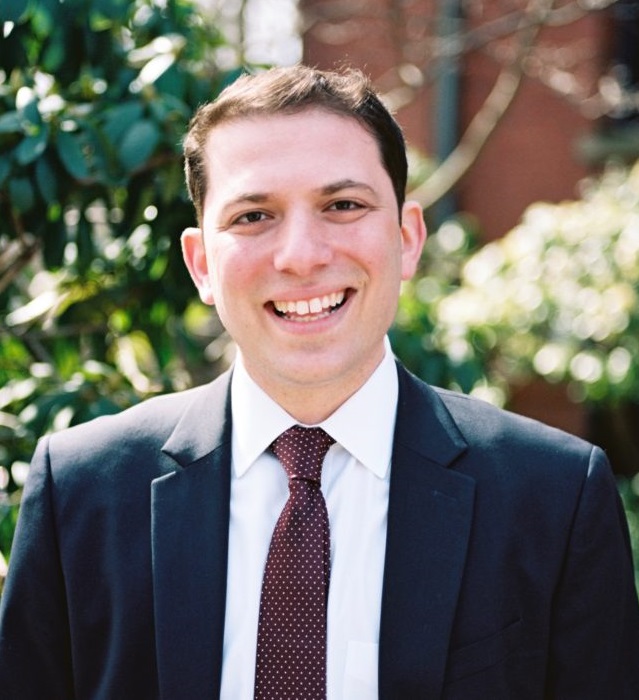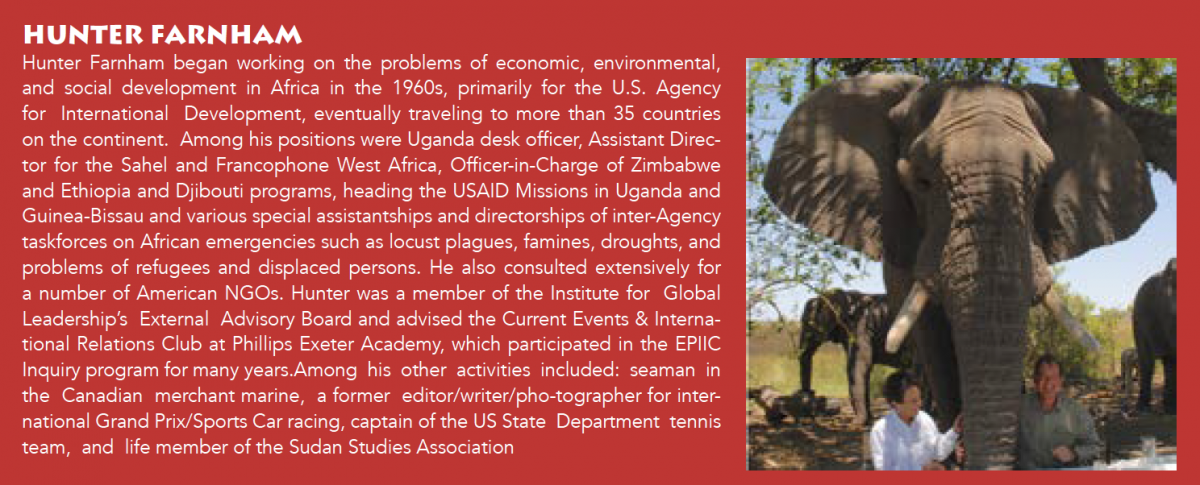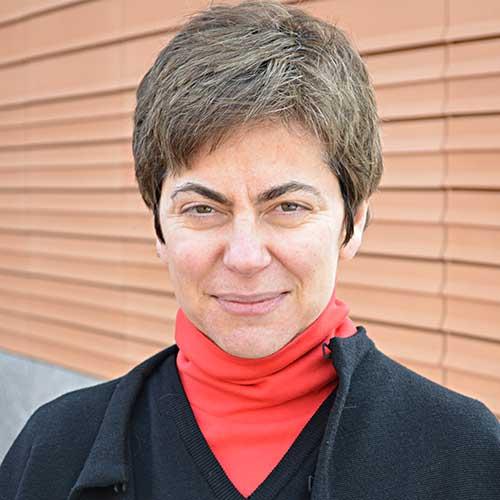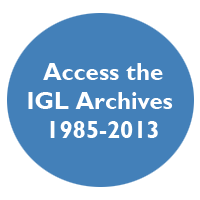INQUIRY 2021-22
Inquiry 2021-22
Climate Change: “Code Red” for Humanity
Inquiry is a global issues simulation program for high school students developed by EPIIC. Inquiry provides a unique opportunity for high school students from across the country to participate in a weekend-long intellectual and challenging simulation centered on a pertinent international or domestic issue. Inquiry creates a forum for young students to engage deeply with compelling issues through intensive study, role-play, and mentorship by Institute students studying the topic in-depth. Inquiry also organizes a yearly investigative triap, typically during the winter intersession, to the country or region of interest. The Inquiry simulation and trip prepare students for global citizenship and develop leadership skills by emphasizing a cooperative approach to achieving progress on complex problems. In the past 20 years, more than 4,800 high school students and 750 Tufts students have participated in the program.
The 2022 Inquiry Simulation Program
HUNTER FARNHAM INQUIRY MEMORIAL KEYNOTE LECTURE
 Dave Cavell is a Senior Advisor to Special Presidential Envoy for Climate John Kerry at the U.S. Department of State. He was a visiting professor at Tufts University's Tisch College of Civic Life for 25 students where he co-taught a course on political communication called "Tweets, Tik Toks, and Talking Points". During the 2020 election he was a Legal Volunteer Coordinator & Boiler Room Pod Leader for the Democratic National Committee where he worked with Voter Protection staff to organize, train, and vet 150 volunteers and attorneys who worked to protect the election in Pennsylvania. He was a candidate for the 2020 U.S. Congress election in Massachusetts's 4th district but dropped out in the primary to consolidate the progressive vote. From 2017-2019, he was a Senior Advisor and Assistant Attorney General for Massachusetts Attorney General Maura Healey. From 2007-2017, Cavell was a political speechwriter and was a Presidential Speechwriter for President Obama and First Lady Michelle Obama in the White House from 2015-2017.
Dave Cavell is a Senior Advisor to Special Presidential Envoy for Climate John Kerry at the U.S. Department of State. He was a visiting professor at Tufts University's Tisch College of Civic Life for 25 students where he co-taught a course on political communication called "Tweets, Tik Toks, and Talking Points". During the 2020 election he was a Legal Volunteer Coordinator & Boiler Room Pod Leader for the Democratic National Committee where he worked with Voter Protection staff to organize, train, and vet 150 volunteers and attorneys who worked to protect the election in Pennsylvania. He was a candidate for the 2020 U.S. Congress election in Massachusetts's 4th district but dropped out in the primary to consolidate the progressive vote. From 2017-2019, he was a Senior Advisor and Assistant Attorney General for Massachusetts Attorney General Maura Healey. From 2007-2017, Cavell was a political speechwriter and was a Presidential Speechwriter for President Obama and First Lady Michelle Obama in the White House from 2015-2017.

 Alexandra Vacroux is Executive Director of the Davis Center for Russian and Eurasian Studies at Harvard University. Her scholarly work addresses many Russian and Eurasian policy issues and she teaches popular courses on the comparative politics of Eurasia and post-Soviet conflict. As Director of Graduate Studies for the Davis Center’s MA program in regional studies, she has mentored dozens of Harvard’s best and brightest students and regional experts. Alexandra lived in Moscow from 1992 to 2004. While there she held a number of positions, including consultant for the Russian Privatization Agency; partner and head of sales at the Brunswick Warburg investment bank; and active member of the board of United Way Moscow. While completing her dissertation on corruption in Russian pharmaceutical markets she was affiliated with the Center for Economic and Financial Research (CEFIR), a Russian think tank associated with the New Economic School. Prior to joining the Davis Center in 2010 lived in Washington, DC, where she was a Scholar at the Kennan Institute, part of the Woodrow Wilson International Center for Scholars. Alexandra received a Dean’s Distinction Award from Harvard’s Faculty of Arts and Sciences, and was given the Alumni Award from the Education for Public Inquiry and International Citizenship (EPIIC) Program at Tufts. As a commentator, she has been praised as "refreshing," "straightforward," and "quick and to the point." She has appeared on NPR, CNN, Fox News Radio, China Central TV, Hromadske TV (Ukraine), and speaks regularly at community forums at home and abroad. She holds a Ph.D. in Government from Harvard University.
Alexandra Vacroux is Executive Director of the Davis Center for Russian and Eurasian Studies at Harvard University. Her scholarly work addresses many Russian and Eurasian policy issues and she teaches popular courses on the comparative politics of Eurasia and post-Soviet conflict. As Director of Graduate Studies for the Davis Center’s MA program in regional studies, she has mentored dozens of Harvard’s best and brightest students and regional experts. Alexandra lived in Moscow from 1992 to 2004. While there she held a number of positions, including consultant for the Russian Privatization Agency; partner and head of sales at the Brunswick Warburg investment bank; and active member of the board of United Way Moscow. While completing her dissertation on corruption in Russian pharmaceutical markets she was affiliated with the Center for Economic and Financial Research (CEFIR), a Russian think tank associated with the New Economic School. Prior to joining the Davis Center in 2010 lived in Washington, DC, where she was a Scholar at the Kennan Institute, part of the Woodrow Wilson International Center for Scholars. Alexandra received a Dean’s Distinction Award from Harvard’s Faculty of Arts and Sciences, and was given the Alumni Award from the Education for Public Inquiry and International Citizenship (EPIIC) Program at Tufts. As a commentator, she has been praised as "refreshing," "straightforward," and "quick and to the point." She has appeared on NPR, CNN, Fox News Radio, China Central TV, Hromadske TV (Ukraine), and speaks regularly at community forums at home and abroad. She holds a Ph.D. in Government from Harvard University.
 Arik Burakovsky, Assistant Director of the Russia and Eurasia Program at The Fletcher School of Law and Diplomacy at Tufts University. His research interests include the political role of the international media, public and elite opinion, soft power, public diplomacy, and U.S.-Russia relations. Arik interned in the Public Affairs Section at the U.S. Embassy Moscow and studied the Polish language and culture as a Boren Fellow at the University of Warsaw in Poland. He has twice served as Resident Director for the ROTC Project GO intensive summer Russian language program in Narva, Estonia, which is conducted in cooperation between the University of Pittsburgh 6:35pm and the University of Tartu Narva College.
Arik Burakovsky, Assistant Director of the Russia and Eurasia Program at The Fletcher School of Law and Diplomacy at Tufts University. His research interests include the political role of the international media, public and elite opinion, soft power, public diplomacy, and U.S.-Russia relations. Arik interned in the Public Affairs Section at the U.S. Embassy Moscow and studied the Polish language and culture as a Boren Fellow at the University of Warsaw in Poland. He has twice served as Resident Director for the ROTC Project GO intensive summer Russian language program in Narva, Estonia, which is conducted in cooperation between the University of Pittsburgh 6:35pm and the University of Tartu Narva College.
Schedule:
Thursday, April 7, 6-9pm, Cabot Intercultural Center, 170 Packard Ave, Medford, MA 02155
|
6:00pm (EDT) |
“The State of the Ukraine Conflict” With IGL Alumna Alexandra Vacroux, Executive Director of the Davis Center for Russian and Eurasian Studies at Harvard University, and Fletcher Alumnus Arik Burakovsky, Assistant Director of the Russia and Eurasia Program at The Fletcher School of Law and Diplomacy at Tufts University. |
|
7:30pm (EDT) |
Post-Lecture Discussion |
|
9:00pm (EDT) |
End Students will be brought to the Olin Building at 180 Packard Ave, Medford, MA 02155. |
Friday, April 8, Room 270, Joyce Cummings Center, 177 College Ave, Medford, MA 02155
(drop off, Tisch Athletic Center, 161 College Ave)
|
5:30pm (EDT) |
Registration |
|
6:00pm (EDT) |
Hunter Farnham Memorial Inquiry Lecture With Dave Cavell, Senior Advisor to Special Presidential Envoy for Climate John Kerry, U.S. Department of State. |
|
7:30pm (EDT) |
Conference Welcome and Delegation Statements |
|
8:30pm (EDT) |
Delegation Meetings |
|
8:50pm (EDT) |
Committee Meetings |
|
10:00pm (EDT) |
Adjourn Students can be picked up at the Tisch Sports Center at 161 College Ave. |
Saturday, April 9
|
10:00am (EDT) |
Delegation Meetings |
|
10:20am (EDT) |
Committee Meetings |
|
12:20pm (EDT) |
Delegation Meetings |
|
12:30pm (EDT) |
Walk to Lunch with your Delegation, 51 Winthrop St |
|
1:30pm (EDT) |
Committee Meetings |
|
5:45pm (EDT) |
Closing Plenary, Room 270, Joyce Cummings Center |
|
6:35pm (EDT) |
Closing Statements on Behalf of the OSCE, Ellie Murphy |
|
6:40pm (EDT) |
Closing Statement: Ria Agarwal, Inquiry Committee, EPIIC Colloquium |
|
6:45pm (EDT) |
Adjourn |
Briefing Paper Components
A. Introduction (this should be one to three paragraphs addressing how you want to present your delegation to the other participating delegations)
B. Key Points (what do you see as the most important issues that your delegation would like addressed at the conference (no more than ten))
C. Background of your country/group (how have key institutions and populations evolved -- three pages)
D. Issues (two to three pages for each committee)
Committee on Global Governance
What type of government or governance does your country or group currently have? How does your country or group participate in global governance and global governance initiatives? What are your country’s or group’s views on sovereignty and intervention? Is that shared across all political parties and/or how this evolved over the last ten years? How would you describe the political and social rights citizens have in your country or in the countries that your group operates in? Are there tensions between the global and national in your country or in your group’s approach to issues? What is your country’s or group’s role in the United Nations? How has your country or group engaged with issues around climate change on the global stage? How has your country or group engaged with issues around climate change on the national stage? Are there major climate change initiatives that your country or group has signed on to or support? Are there major climate change initiatives that your country or group has not signed on to or not supported? What are three major efforts that your country or group has enacted to contend with climate change?
Committee on Migration
What is your country’s or organization’s historical view of migration and its impact? What does your country or group see as the obstacles to and implications of integrating immigrants? Do global policies regarding migrants, refugees, and asylum seekers need to be reformed? If yes, in what ways? If no, why not? What are the current migration flows within your country – in or out? What is creating those flows Describe your expectations and commitment to policies regarding the United Nations’ determination that climate refugees should be a classification. Do you agree or disagree that there needs to be a securitization of borders? Animal migration is an increasingly important issue as climate change is affecting ecosystems. Has your country or group been addressing this issue?
Committee on Security
What are the major security concerns facing your country, or if you are a group, what are the major security concerns in the regions that you work? How have recent events climate events affected your perception of security priorities, if at all? What military or security alliances and organizations are you a part of if any, and what is your role within these? Do these have a climate component? Do these have a refugee/migration component? Do you agree or disagree that there needs to be a securitization of borders? How has the pandemic impacted your view on global security? What countries or entities are you dependent upon for either acquiring your energy or buying your energy? Has energy been a source of cooperation or coercion for your country? Is your country or organization in a vulnerable geographic or strategic position regarding climate change or energy?
Committee on Energy
Is your country energy dependent or independent? Who are you dependent upon for either acquiring your energy or buying your energy? Has energy been a source of cooperation for your country? Why or why not? What types of energy make up the most of your usage? What roles do fossil fuels play in your energy plans today and for ten years from now? What roles do renewables energies play in your energy plans today and for ten years from now? How would you describe the link between your economy and fossil fuels? How would you describe the link between your economy and renewable energy?
Organizations
What are your positions on the use of fossil fuels? What are your positions on the use of renewable energies? What are your positions on the future of the energy industry? What are your positions on whether or not fossil fuels contribute to climate change? What are your positions on the economic trade-offs of adopting renewable energies?
Committee on Agriculture and Food Security
Is your country a food exporter or food importer or both? What are your major agricultural industries? What percentage of your economy is dependent on the agricultural industry? What percentage of your food usage is domestic? What percentage of your food is exported? What percentage of your country is food secure? What percentage of your country faces food insecurity? Has extreme weather in the last ten years had an impact – positive or negative -- on your agricultural industry? In what way?
Organizations
From your vantage point, how would you describe the impact of climate change on global agriculture, both positively and negatively? From your vantage point, how would you describe global food security and global food insecurity and how evenly or unevenly each is spread globally? From your vantage point, how would you describe the current global food and distribution chain?
Committee on Economic Development
What is the current state of your economy? Has your economy been affected by the impacts of climate change, positively and/or negatively? If so, how? If not, why not? Has your country been impacted by extreme weather? If you are an organization, how would you describe the impact of climate change on the global economy? Do you perceive climate change as a challenge to the global economy? What policies would be best for your country? What do you think about austerity measures?
Committee on Justice and Human Rights
Climate change poses not only political and economic challenges, but also challenges for what some might call global ethics or morals. Some of the countries most impacted by climate change are countries that have not contributed to its acceleration. Are you a country that has benefitted from the freedom to develop using fossil fuels and other technologies that impact the environment? If so, what is your position on how the world should move forward in the future? Is there a debt owed to the most impacted countries? Are you a country feeling the impact of the development of the Global North without having contributed to it? If so, what do you think your country is owed? Are you an organization that either has an impact on climate change or works to mitigate it? What, if anything, should be done to assist the countries who are likely to bear the burden? Has your country or group implemented any policies or actions to aid the Global South or Small Island States? Do you agree that there will be climate refugees in the future and that they should be recognized as such? Why or why not?
Discussions will focus on seven major areas:
- South China Sea
- Taiwan
- Human Rights
- Development
- Trade and Technology
- The Korean Peninsula
- Climate Change, Global Health and Resilience
|
MENTORS |
SCHOOLS |
ROLES |
|
Ian Boldiston |
Columbia Prep |
China |
|
Joseph Lim |
Columbia Prep |
|
|
Maya van Rosendaal |
Columbia Prep |
|
|
Seif Zrelli |
Packer Collegiate |
|
|
Sage Spalter |
Packer Collegiate |
|
|
Selomi Dayaprema |
Dover-Sherborn |
|
|
Rachel Coll |
Dover-Sherborn |
|
|
Janya Gambhir |
Dover-Sherborn |
|
|
Selomi Dayaprema |
Dover-Sherborn |
|
|
Meera Rohera |
Back of the Yards |
India |
|
Izzy Martinez-Merlos |
Back of the Yards |
Netherlands |
|
Ria Agarwal |
Boston Latin School |
|
|
Hunter Purevbayar |
Boston Latin School |
|
|
Maya van Rosendaal |
Pace Academy |
European Union |
|
Ria Agarwal |
Pace Academy |
Indonesia |
|
Ellie Murphy |
Malden High School |
|
|
Briana McGowan |
Malden High School |
|
|
Isabella Getgey |
El Puente Academy |
Brazil |

